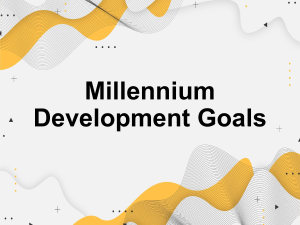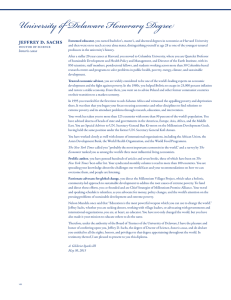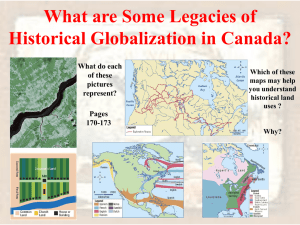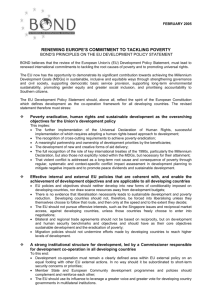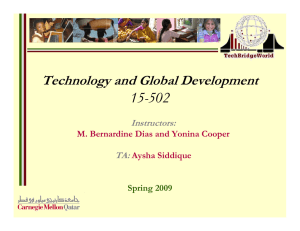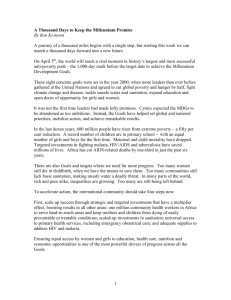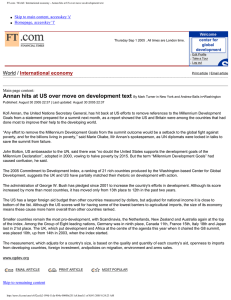Politics of the Third World
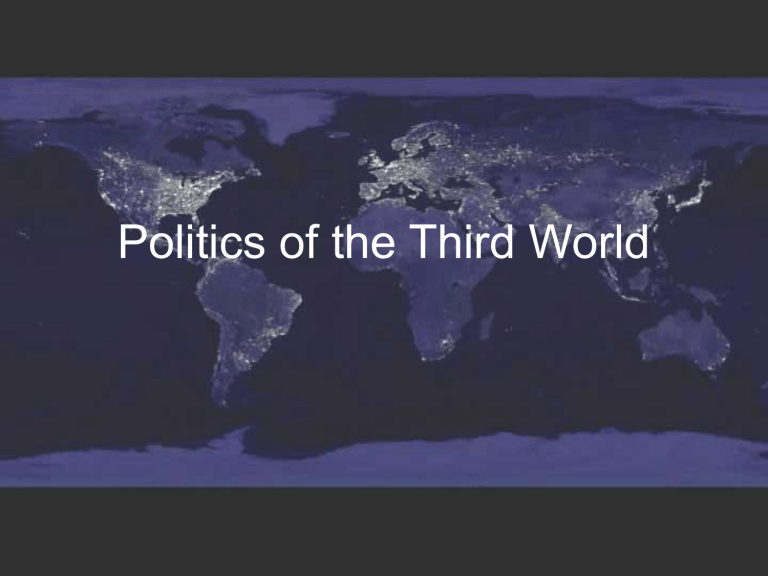
Politics of the Third World
Third World countries
5 most important issues
• facing the Third World today
– poverty
• developing countries
– globalization
– weak state
– ethnicity
– environment
Why study the Third World?
• Interdependence and globalization
• most of the world
– population
– area
• most of the natural resources
– raw materials and energy resources
– Organization of Petroleum Exporting
Countries
Why study the Third World?
• Western role in creating and sustaining some of the problems in the Third World
Why study the Third World?
• We ignore the Third World at our peril
Millennium Development Goals
• In 2000 the UN Millennium Declaration was adopted at the largest-ever gathering of heads of state
Millennium Development Goals
1 eradicate extreme poverty and hunger
2 achieve universal primary education
3 promote gender equality
4 reduce child mortality
5 improve maternal health
6 combat HIV/AIDS, malaria, etc.
7 ensure environmental sustainability
8 global partnership for development
Poverty & economic growth
Poverty & economic growth
Imperialism & Third World
• European colonial expansion for 300 years
• most colonies are independent after WWII
political legacies
• traditional polity and “modern” state
• state boundaries drawn to suit colonizers
economic legacies
• “dependency” theory
– “core” vs. “periphery”
• foreign trade structure
Types of state
• strong states
• weak states
– multi-party democracies
– single-party regimes
– military regimes
– personal dictatorships
• failed states
Levels of democracy
• The “third wave of democratization”
State & economic development
• weaknesses in physical and human infrastructure
• political instability harms investment and consumption
• political allocation of scarce resources
• weak and ineffective state institutions to implement economic policies
• widespread corruption
International financial institution
• The International Monetary Fund (IMF) and the World Bank
– headquarters in Washington D.C.
– voting weight proportional to fund contribution
– IMF loans are subject to conditionality
• acceptance of structural adjustment (liberalization)
• privatization
• reduce inflation
• cut debt
World Trade Organization
• lower tariffs and ease other trade barriers
Foreign aid
